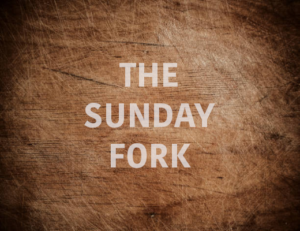In the illustrious realm of culinary prowess, one name reigns supreme: Julia Child. Her towering presence in the kitchen, both literally and figuratively, has inspired generations to whip up gastronomic delights fit for kings and queens. As a wide-eyed youngster with a kitchen apron far too big and a dream even bigger, I embarked on a daring mission: to cook like Julia Child.
Armed with nothing but a pot, water, and an assortment of spices that would make a medieval apothecary blush, I set forth on my culinary odyssey. Forget the complexities of sauces and the intricacies of meats—my kitchen ballet was about to commence with the simplest of ingredients.
Channeling my inner Julia, or rather, my approximation thereof (complete with exaggerated French accent), I ceremoniously poured water into the pot. Ah, the essence of all culinary beginnings—a blank canvas, awaiting the stroke of a genius. Or in my case, a desperate attempt to avoid setting the kitchen on fire.
With the confidence of a seasoned chef and the naivety of a child, I liberally sprinkled spices into the simmering water. Basil for flair, oregano for depth, and a touch of paprika for that exotic je ne sais quoi. Each spice was added with precision and an air of mystery, as if unlocking the secrets of a culinary treasure map.
As the pot bubbled away like a witch’s cauldron, I couldn’t help but marvel at the transformative power of spices. In my mind, I was Julia, effortlessly whipping up a masterpiece that would leave Michelin-starred chefs scratching their heads in wonder. In reality, I was more likely concocting a potion that would challenge even the bravest of taste buds.
With each passing minute, the aroma of my creation filled the kitchen—a heady mix of herbs and misguided ambition. I stirred with vigor, imagining myself hosting a cooking show, narrating each step with a flourish that rivaled Julia’s own. “And now, mes amis, we add the pièce de résistance—the essence of water infused with the soul of spices!”
The moment of truth arrived. With a trembling hand and a heart full of anticipation, I ladled the concoction into a bowl. The presentation was impeccable, if I do say so myself—although my family might have questioned my artistic vision as they eyed the bowl suspiciously.
I took a tentative spoonful, bracing myself for a burst of culinary brilliance. The flavors danced on my tongue in a cacophony of confusion—spices battling for dominance over the watery abyss. Was it a triumph? Well, let’s just say Julia probably wouldn’t have included it in her next cookbook.
Reflecting on my ambitious foray into the world of haute cuisine, I realized that perhaps Julia Child’s magic lay not just in her recipes, but in her fearless approach to cooking. She taught us that even the most humble ingredients can be transformed into something extraordinary with passion and a touch of whimsy.
So, here’s to you, Julia—thank you for inspiring generations of aspiring chefs, from the grand kitchens of Paris to the makeshift stovetops of childhood. And to all young culinary adventurers out there: dare to dream, dare to experiment, and never underestimate the power of water and spices in a pot. After all, even Julia had to start somewhere.

